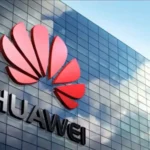plowunited.net – The Trump administration is considering a new method to prevent advanced microchips from reaching China by embedding location trackers into the hardware. Michael Kratsios, former Science Advisor to President Donald Trump, confirmed that the US is evaluating location-based monitoring to restrict chip flow beyond legal channels. A US official also told Bloomberg that the White House explicitly advised moving forward with this idea.
Read More : Infinix GT 30 5G+ Launches in India With Pro Gaming Features
This development follows growing concerns that despite existing export bans, some chips are still ending up in China. Nvidia, for example, has refused to sell certain processors directly to the Chinese market. However, reports have emerged of US chips avoiding controls and reaching Chinese firms through indirect routes. The FBI recently arrested two Chinese nationals for allegedly smuggling millions of dollars’ worth of sensitive chips to China. These chips are used in artificial intelligence and military-related applications, raising national security alarms. Kratsios also clarified that discussions around the tracking proposal have not yet involved chipmakers such as Nvidia or AMD. The administration appears to be working on the strategy internally before consulting with industry leaders.
US Strengthens Tech Restrictions to Limit China’s AI Development
For years, the US government has pursued strict measures to limit China’s access to advanced American technologies. These include blacklisting companies, restricting component exports, and banning Chinese-made tech in federal infrastructure. Under the Trump administration, these measures intensified, citing national security risks like espionage, surveillance, and military use of commercial technology. The effort also aims to slow China’s rapid progress in artificial intelligence, quantum computing, and high-performance processing.
In April, the US imposed a ban on Nvidia, preventing the company from exporting high-performance AI chips to China. However, the restriction was later partially eased. Nvidia is now allowed to sell its H20 processors to the Chinese market, but only under limited conditions.
Read More : DeepSeek AI Model from China Draws Global Attention
Tracking chips can give the US greater control over the use of exported hardware once it leaves the country. If the government implements the strategy effectively, it can monitor chip movements in real time and prevent secondary sales or smuggling. However, the plan raises concerns about privacy, cost, enforceability, and the need for international cooperation. Civil liberty groups will likely scrutinize the move, and manufacturers must collaborate on the effort—a process the government has not yet initiated.
The US continues to tighten its grip on strategic technologies amid intensifying global competition in AI. Whether this tracking initiative moves from concept to deployment will depend on legal, technical, and diplomatic factors. For now, it reflects a broader shift toward proactive enforcement and digital export monitoring in US-China tech relations.


